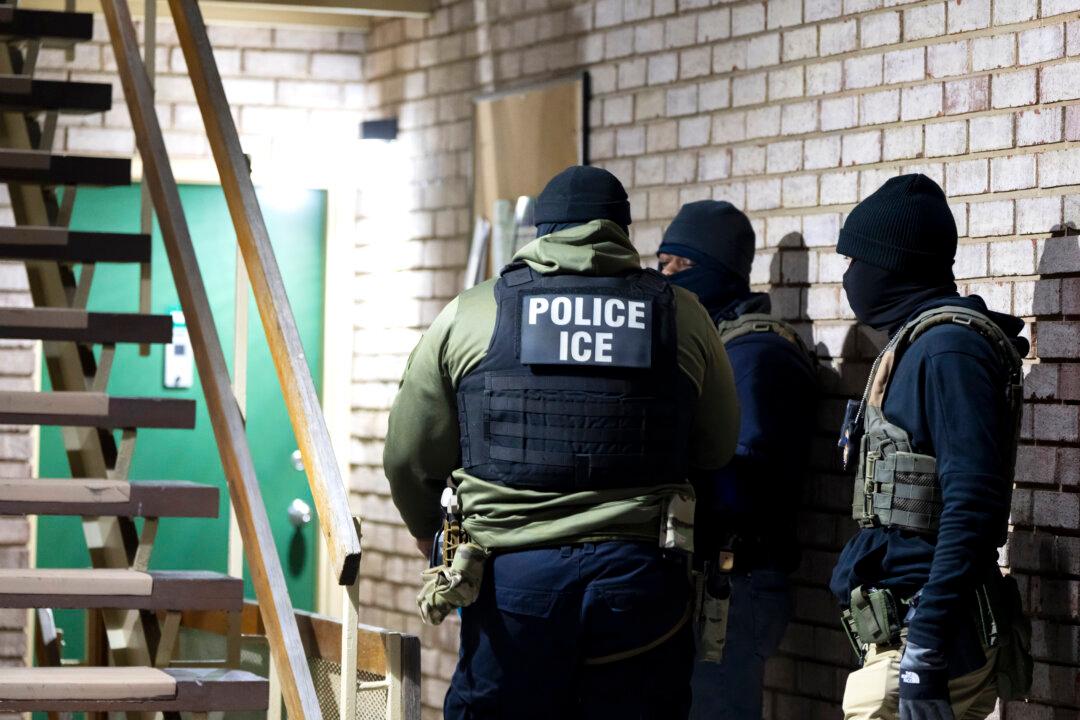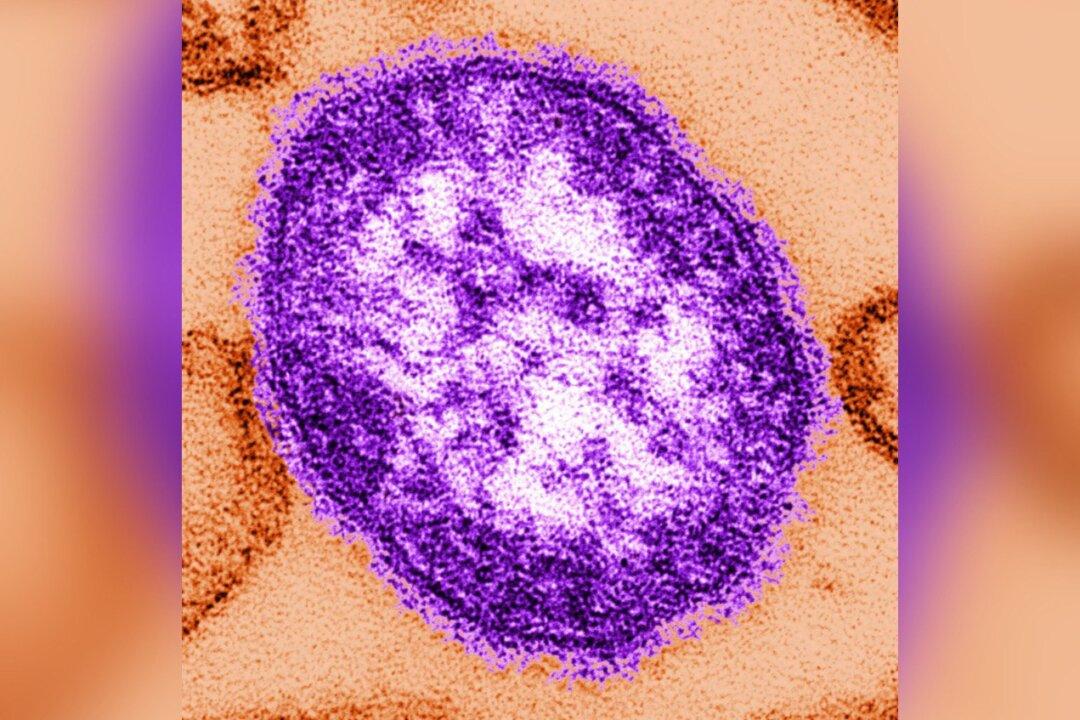The United States’ daily COVID-19 case numbers reached near-record levels due to the spread of the Omicron variant, surpassing the earlier Delta surge. But hospitalizations so far have remained relatively low, as researchers have suggested the new strain presents milder symptoms.
However, it’s much lower than peak hospitalizations that were seen during the Delta surge and about half that of the record-high hospitalizations in January 2021. On Sept. 1, some 98,000 people were hospitalized around the United States due to the Delta surge, and on Jan. 14, 2021, more than 133,000 were hospitalized, the data show.
Previously, health officials have said that hospitalization rates sometimes lag behind case rates as symptoms worsen.

“This is not a surprise,” Democratic New York Gov. Kathy Hochul told reporters. “This is a very, very contagious variant.”
But several recent studies, including two published by UK researchers, suggest that Omicron presents less severe symptoms and results in fewer hospitalizations overall. So far, only one death has been reportedly associated with the variant in the United States, one in Germany, one in Australia, and around a dozen in the UK.
The researchers also estimated that natural immunity, or protection from a prior infection, reduces the risk of hospitalization by 50 percent and the risk of a hospital stay of one night or more by 61 percent.
Scientists in a separate Scotland-wide study called Early Pandemic Evaluation and Enhanced Surveillance of COVID-19 said Omicron is associated with a two-thirds reduction in the risk of hospital admission compared with Delta.
Government officials are beginning to take notice, too. The UK Health Security Agency said last week that Omicron is up to 70 percent less likely to result in hospitalization so far.
A person with the Omicron variant is estimated to be as much as 45 percent less likely to visit the emergency room as compared with Delta—and as much as 70 percent less likely to be admitted to hospital, according to research.
The variant, Health Minister Joe Phaahla said at the time, shouldn’t prevent people from enjoying a “joyous Christmas and prosperous New Year celebrations.”
Despite the variant’s apparently milder nature, cities and municipalities across the U.S. have increasingly implemented mandates and vaccine passport systems.
This month, Philadelphia, Boston, and Chicago became the latest to impose vaccine passports for restaurants, gyms, and other venues. The mayors of those cities cited the spread of Omicron as a primary reason for the new mandates, despite little evidence showing that they work to curb the CCP virus.
But some federal health officials, including Biden administration adviser Anthony Fauci, have warned that because of Omciron’s highly transmissible nature, more COVID-19 cases can be expected than during previous waves.
“Well, there’s one thing that’s for sure that we all agree upon, that it is extraordinarily contagious,” Fauci told ABC News on Dec. 26. ”It’s just outstripped even the most contagious of the previous ones, including Delta. There’s no argument on anybody’s part about that.”
The variant, he said, may reach more people, leading to increasing numbers of people experiencing symptoms.
Over the weekend, the CDC issued an alert to health care workers to prepare for a possible surge in hospitalizations and cases.
However, under “crisis” conditions, health care workers can return to work after five days as a last resort without any testing as long as they remain asymptomatic. Those health care workers should wear a respirator or well-fitting face mask while on the job, the federal health agency said.





